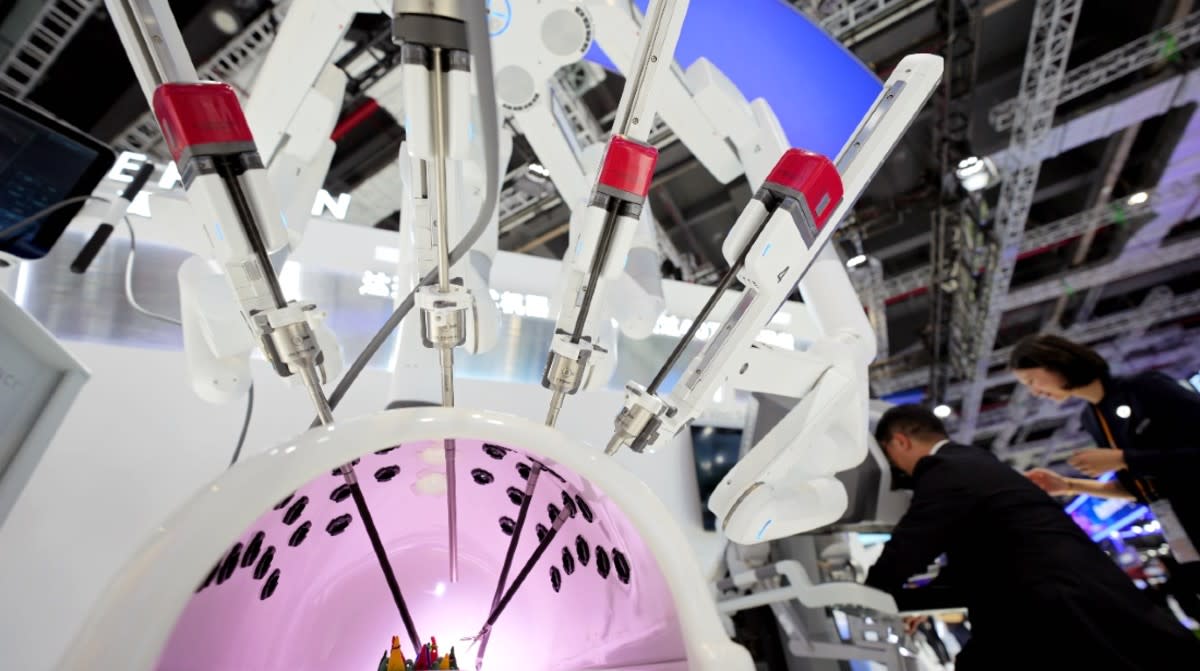Surgical Robot Caused Fatal Internal Burns, New Lawsuit Claims

It may be capable of performing surgery on a grape, but a da Vinci surgical robot is being blamed for the death of a Boca Raton woman whose husband said she was burned by the machine during a September 2021 procedure.
According to NBC News, legal documents state that Sandra Sultzer, 78, died in 2022, a few months after a procedure to treat her colon cancer. During the surgery, the the rubber sleeves around the arms of the machine were allegedly cracked, allowing electrical currents to escape and burn into her body tissue.
The da Vinci surgical robot, which is manufactured by Intuitive Surgical Inc., is operated by a surgeon who uses a joystick and foot pedals to control the three to four arms, depending on the model, which can hold objects or can act as scalpels, scissors, bovies, or graspers. One of the arms is likewise used by a doctor to train 3D cameras on the surgical site. The machine is designed to cut tiny, precise incisions to minimize blood loss and trauma to the body that can occur during traditional surgery.
Sultzer's husband filed a lawsuit claiming that her internal organs were burned without the surgical team even being aware of what was happening. He alleges that Intuitive Surgical failed to adequately warn about the risks the machine poses, and that the company should have known of the dangers from "thousands of injury and defect reports" about the device. Additionally, he claims that the robot was not designed in a safe way or tested adequately to avoid the risk of burns.
Since 2012, da Vinci robots have been used to perform an estimated 200,000 surgeries, most commonly for hysterectomies and prostate removals. However, the company has been accused in the past of providing inadequate training for healthcare providers and reducing the number of supervised procedures required before a doctor is permitted to use the system without supervision.
While the company has not responded to the current lawsuit, back in 2015 it told NBC News that its product was safe.
“While any surgery regardless of modality carries risk, the best evidence of the safety and efficacy of robotic-assisted surgery can be found in the more than 15,000 peer-reviewed scientific publications that are fully grounded in scientific method and that, in aggregate, support the safety and efficacy of our systems,” it said.
Sultzer's husband is reportedly seeking unspecified damages.

